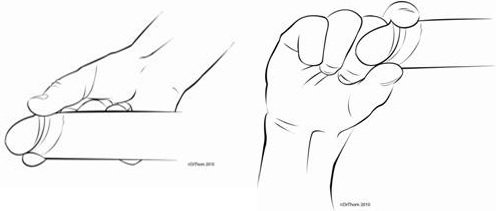Treatment Methods

Premature Ejaculation Treatment: A Comprehensive Guide

Premature ejaculation (PE) is one of the most common male sexual health issues, affecting millions of men worldwide. While it can be frustrating and emotionally distressing, the good news is that premature ejaculation is treatable. The success of treatment depends largely on the patient’s commitment and a multidisciplinary medical approach.
In this article, we’ll explore the best treatments for premature ejaculation, causes, and effective techniques to improve control and quality of life.
What Is Premature Ejaculation?
Premature ejaculation is defined as ejaculation that occurs sooner than desired—either before or shortly after penetration—with minimal sexual stimulation. It may occur during partnered sex or masturbation and can lead to stress, anxiety, and relationship difficulties.
Types of Premature Ejaculation
- Primary PE: Present from the first sexual experiences and often has a neurological or genetic component.
- Secondary PE: Develops after a period of normal sexual function and is usually linked to psychological or physical causes such as stress, anxiety, or erectile dysfunction.
Symptoms and Diagnosis
Common symptoms include:
- Ejaculation that occurs within one minute of penetration
- Inability to delay ejaculation during most sexual encounters
- Negative personal consequences such as stress or avoidance of intimacy
Diagnosis is made through a detailed sexual history, physical examination, and sometimes psychological assessment.
Effective Treatment Options for Premature Ejaculation
1. Pelvic Floor Muscle Training
There is strong evidence linking weak pelvic floor muscles to sexual dysfunction. Training these muscles increases sexual control and can delay ejaculation. The technique involves:
- Contracting the muscles used to stop the flow of urine (anterior muscles)
- Contracting the anal muscles (posterior muscles)
These exercises, known as Kegel exercises, should be done several times daily for several weeks. Biofeedback therapy can help optimize training by ensuring correct muscle activation.
2. Medication for Premature Ejaculation
Fortacin Spray
- A topical anesthetic spray combining lidocaine and prilocaine
- Reduces penile sensitivity and increases time to ejaculation
- Applied 5 minutes before intercourse and rinsed off before penetration
- Safe for circumcised and uncircumcised men
Dapoxetine
- A short-acting Selective Serotonin Reuptake Inhibitor (SSRI)
- Taken 1 hour before sexual activity
- Especially effective in primary PE
- Available in 30mg and 60mg doses
Erectile Dysfunction Medications
Drugs like sildenafil (Viagra) and tadalafil (Cialis) not only improve erection quality but may also prolong intercourse time in some men with PE.
3. Psychological Counseling and Sex Therapy
Mental health plays a major role in sexual performance. Cognitive Behavioral Therapy (CBT) and other forms of counseling help men address:
- Performance anxiety
- Negative thoughts
- Relationship stress
Techniques like triangular breathing (slow, deep breathing) are often used to reduce anxiety and increase arousal control.
4. Start-Stop Technique
This technique involves stimulating the penis until just before ejaculation, then stopping all stimulation to delay orgasm. Over time, it trains the body to gain better control and delay ejaculation naturally. It is highly effective but requires patience and practice.
5. Combination (Multimodal) Treatment
Research shows that a multimodal treatment approach—combining medication, pelvic floor training, psychological support, and sexual techniques—offers the best long-term results. Treatments should always be tailored to the individual’s needs and relationship context.
Surgical Options (Last Resort)
While rarely recommended, certain surgical procedures are being explored:
- Circumcision (Postectomy): Not proven effective for PE
- Dorsal Nerve Neurotomy: Experimental and controversial
- Radiofrequency Neuromodulation: New method showing promising early results
Conclusion: Commitment is Key to Successful PE Treatment
Premature ejaculation can deeply affect confidence and intimacy, but it’s treatable. The best outcomes come from a personalized, consistent, and well-rounded treatment plan, often involving:
- A urologist
- A sex therapist
- A physiotherapist
With the right guidance and commitment, lasting improvement is possible.


